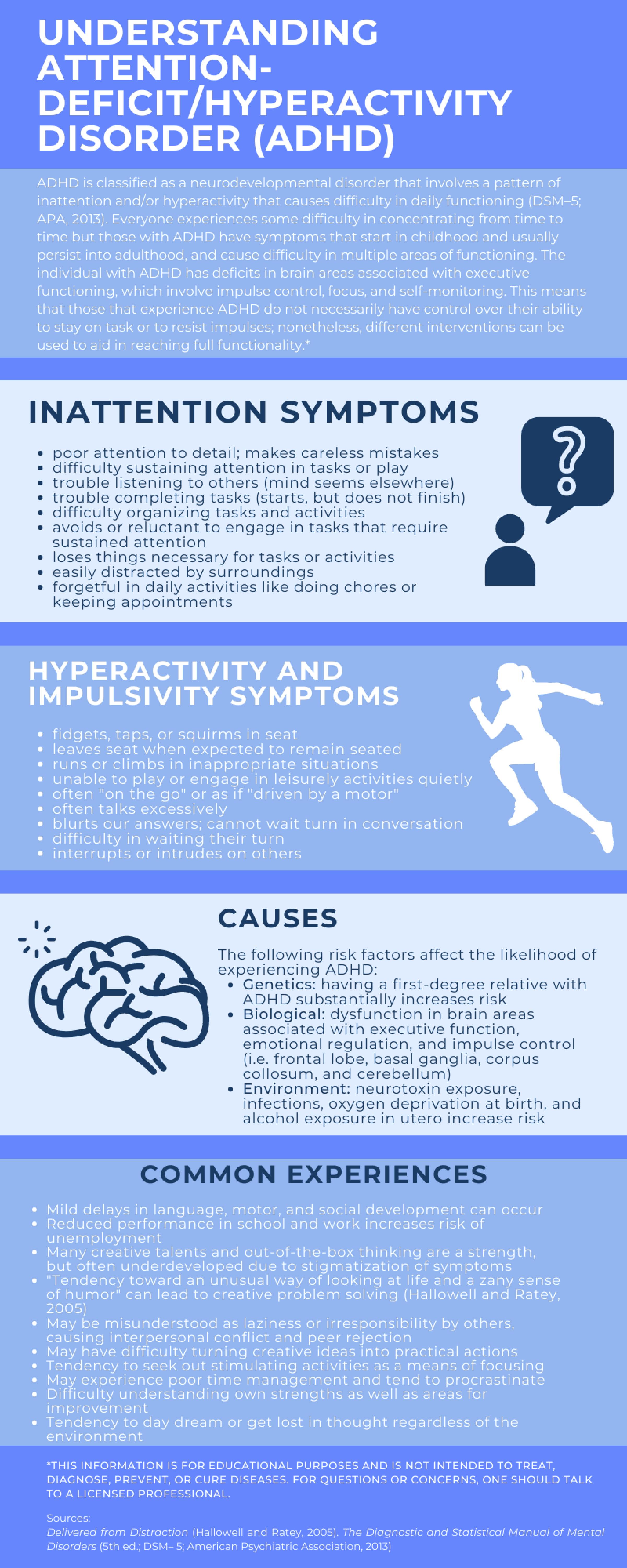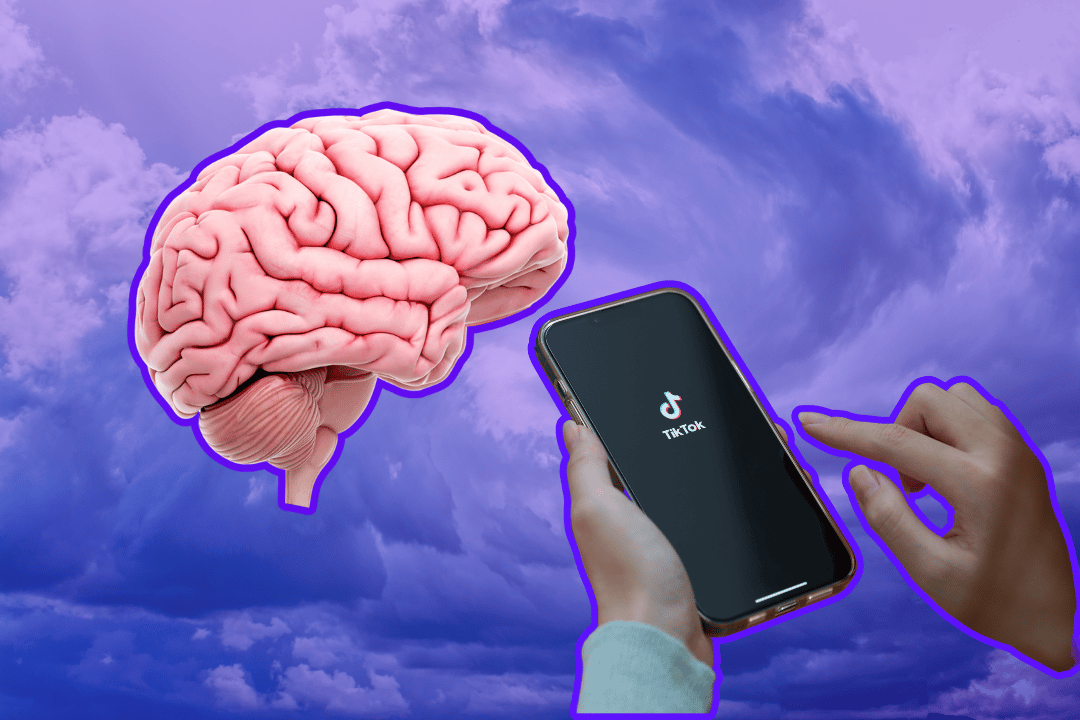Understanding And Managing ADHD Symptoms Naturally

Table of Contents
Nutritional Strategies for ADHD Symptom Management
The link between diet and ADHD symptoms is increasingly recognized. What you eat can significantly impact your focus, energy levels, and overall ability to manage ADHD. A balanced diet, rich in essential nutrients and free from harmful additives, is crucial for effective ADHD management. This means focusing on whole, unprocessed foods and avoiding those that can exacerbate symptoms. The right nutrition for ADHD is a key element in managing this condition naturally.
-
Eliminate processed foods, sugary drinks, and artificial colors/preservatives: These can lead to blood sugar spikes and crashes, negatively impacting focus and mood. Think of it as fueling your brain for optimal function. An ADHD diet should prioritize whole foods.
-
Increase consumption of omega-3 fatty acids: Found in fatty fish (salmon, tuna, mackerel), flaxseeds, and chia seeds, omega-3s are essential for brain health and function. They play a vital role in reducing inflammation and supporting cognitive function, which are often compromised in individuals with ADHD.
-
Incorporate foods rich in iron, zinc, and magnesium: These essential minerals are vital for brain development and function. Deficiencies can worsen ADHD symptoms, impacting focus, memory, and mood. Consult a doctor or registered dietician to check for any deficiencies.
-
Consider a consultation with a registered dietitian specializing in ADHD nutrition: A dietitian can create a personalized nutrition plan tailored to your specific needs and preferences to optimize your ADHD diet and support your overall well-being.
-
Explore the potential benefits of specific vitamins and supplements (always consult a doctor before starting any supplement regimen): Some research suggests that certain vitamins and minerals may help manage ADHD symptoms, but it's crucial to consult your doctor before starting any new supplements, to avoid potential interactions and ensure they're safe and appropriate for you.
Lifestyle Changes to Support ADHD Focus and Calm
Lifestyle adjustments are a cornerstone of managing ADHD naturally. Simple changes can have a profound impact on your ability to focus, manage impulsivity, and improve your overall well-being. A holistic approach to managing ADHD includes addressing these lifestyle factors.
-
Prioritize 7-9 hours of quality sleep each night: Consistent sleep is crucial for brain function and mood regulation. Poor sleep exacerbates ADHD symptoms, impacting focus, concentration and emotional control.
-
Engage in regular physical activity (at least 30 minutes most days): Exercise is a natural mood booster and stress reliever. It improves focus and reduces hyperactivity. Find activities you enjoy, whether it’s running, swimming, yoga or team sports.
-
Practice stress-reducing techniques like yoga, meditation, or deep breathing exercises: Stress can significantly worsen ADHD symptoms. Mindfulness techniques help you stay grounded and manage impulsive behaviors.
-
Incorporate mindfulness practices into your daily routine: Mindfulness helps you focus on the present moment, improving concentration and reducing impulsivity. Even a few minutes a day can make a difference.
-
Create a structured daily routine with clear schedules and prioritized tasks: Structure and organization can significantly improve your ability to manage tasks and reduce feelings of overwhelm. This can be a huge help in managing ADHD naturally.
Cognitive Behavioral Therapy (CBT) and ADHD
Cognitive Behavioral Therapy (CBT) is a powerful therapeutic approach for managing ADHD symptoms. CBT helps individuals identify and change negative thought patterns and behaviors that contribute to their challenges. It's a proven method in managing ADHD without medication, focusing on practical coping strategies.
-
CBT teaches coping mechanisms for impulsivity and hyperactivity: It equips you with strategies to manage impulsive behaviors and reduce hyperactivity.
-
CBT helps develop strategies for improved organization and time management: Learn effective techniques to improve organization, prioritization, and time management.
-
CBT can help manage emotional regulation challenges associated with ADHD: It teaches skills to manage emotional responses and improve emotional stability.
-
Find a therapist specializing in CBT for ADHD: Ensure your therapist has experience working with individuals with ADHD to get the most effective treatment.
-
Be patient and consistent with CBT; it takes time and practice to see results: CBT is a process that requires commitment and consistent effort.
Complementary Therapies for ADHD Symptom Relief
While not a replacement for professional help, complementary therapies may offer additional support in managing ADHD symptoms. These should always be used in conjunction with, and with the approval of, your doctor or other healthcare professional.
-
Acupuncture may help improve focus and reduce anxiety: Some studies suggest acupuncture may have a positive impact on attention and anxiety, commonly associated with ADHD.
-
Massage therapy can promote relaxation and reduce stress: Relaxation techniques can aid in managing the stress often linked to living with ADHD.
-
Neurofeedback can help train the brain to regulate its activity: Neurofeedback is a technique that uses real-time feedback to help you learn to control your brainwave activity.
Remember to thoroughly research practitioners and discuss potential benefits and risks with your doctor before trying any complementary therapies.
Conclusion
Successfully managing ADHD symptoms naturally requires a holistic approach. By incorporating nutritional changes, lifestyle adjustments, CBT, and potentially complementary therapies, you can significantly improve your focus, concentration, and overall well-being. Remember, consistency is key. While these natural strategies can be highly effective, it's crucial to consult with your healthcare provider before making significant changes to your diet, lifestyle, or treatment plan. Start exploring natural ways to manage your ADHD symptoms naturally today!

Featured Posts
-
 The Zuckerberg Trump Dynamic Implications For The Tech Industry
Apr 29, 2025
The Zuckerberg Trump Dynamic Implications For The Tech Industry
Apr 29, 2025 -
 Mets Starting Rotation Evaluating Pitchers Name S Chances
Apr 29, 2025
Mets Starting Rotation Evaluating Pitchers Name S Chances
Apr 29, 2025 -
 Trainerwechsel Austria Wien Pacult Geht Jancker Kommt
Apr 29, 2025
Trainerwechsel Austria Wien Pacult Geht Jancker Kommt
Apr 29, 2025 -
 Porsche Macan Electric What To Expect From The New Model
Apr 29, 2025
Porsche Macan Electric What To Expect From The New Model
Apr 29, 2025 -
 The Problem Of Self Diagnosing Adhd Via Tik Tok
Apr 29, 2025
The Problem Of Self Diagnosing Adhd Via Tik Tok
Apr 29, 2025
Latest Posts
-
 Federal Funding Cuts A Deep Dive Into Trump Countrys Struggle
Apr 30, 2025
Federal Funding Cuts A Deep Dive Into Trump Countrys Struggle
Apr 30, 2025 -
 Richmond Gun Case Man Sentenced For Endangering Child
Apr 30, 2025
Richmond Gun Case Man Sentenced For Endangering Child
Apr 30, 2025 -
 Man Sentenced After Hiding Gun From Child In Richmond
Apr 30, 2025
Man Sentenced After Hiding Gun From Child In Richmond
Apr 30, 2025 -
 How Federal Funding Cuts Affect Trump Countrys Economy
Apr 30, 2025
How Federal Funding Cuts Affect Trump Countrys Economy
Apr 30, 2025 -
 Destination Nebraska Act And The Future Of Gretnas Rod Yates Project
Apr 30, 2025
Destination Nebraska Act And The Future Of Gretnas Rod Yates Project
Apr 30, 2025
